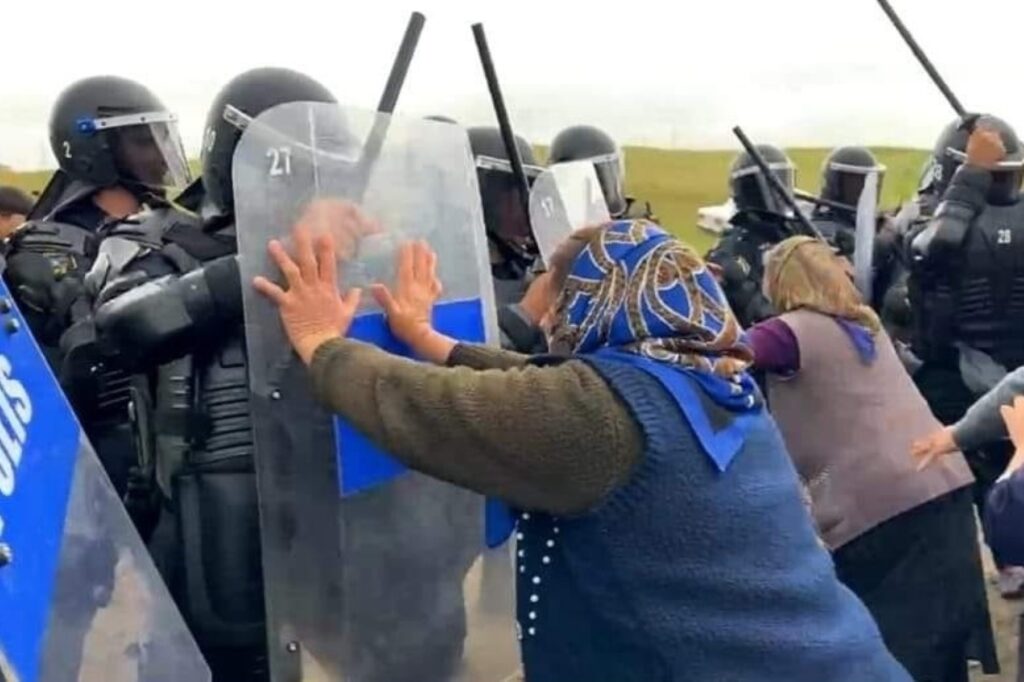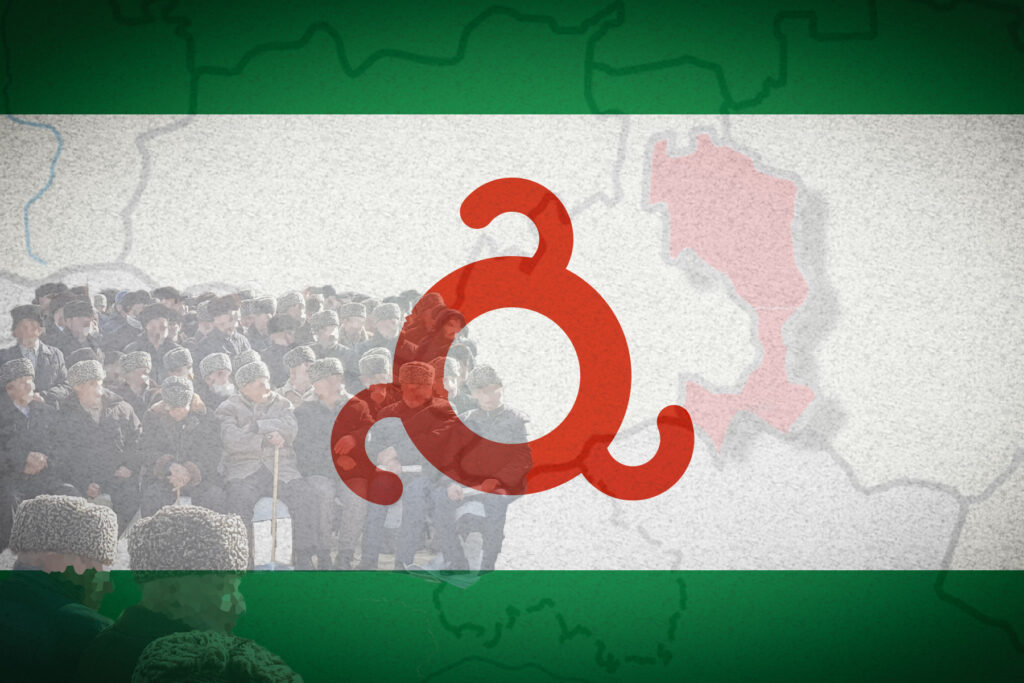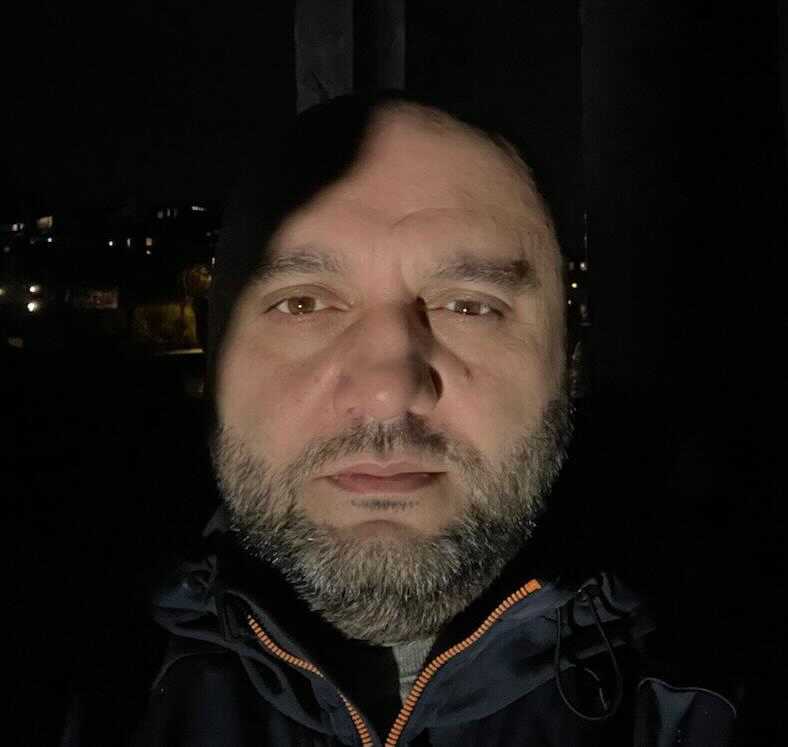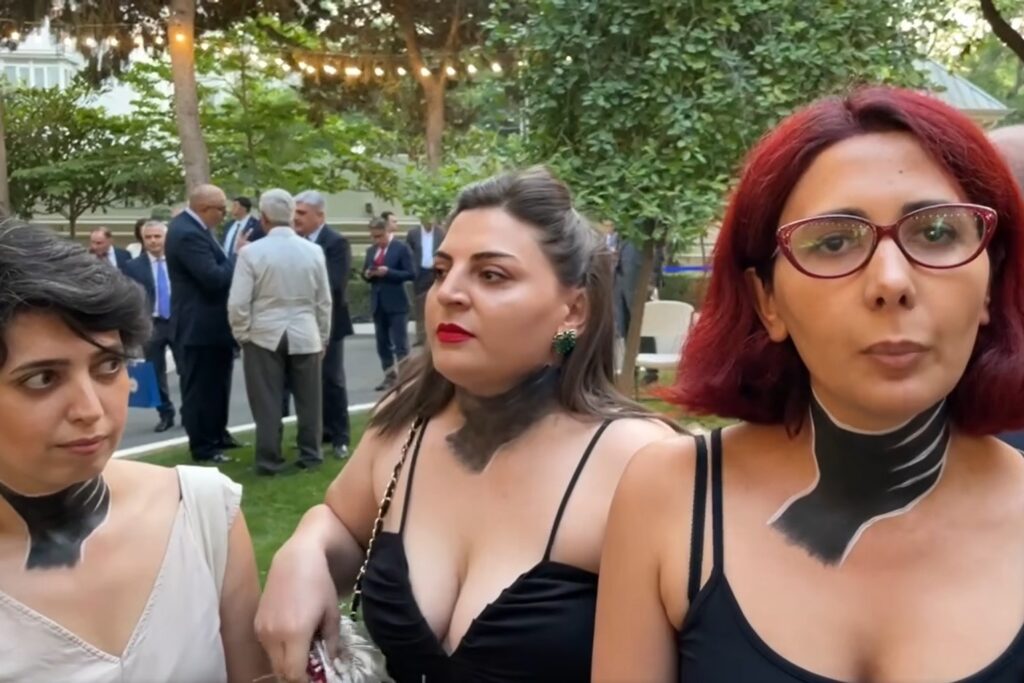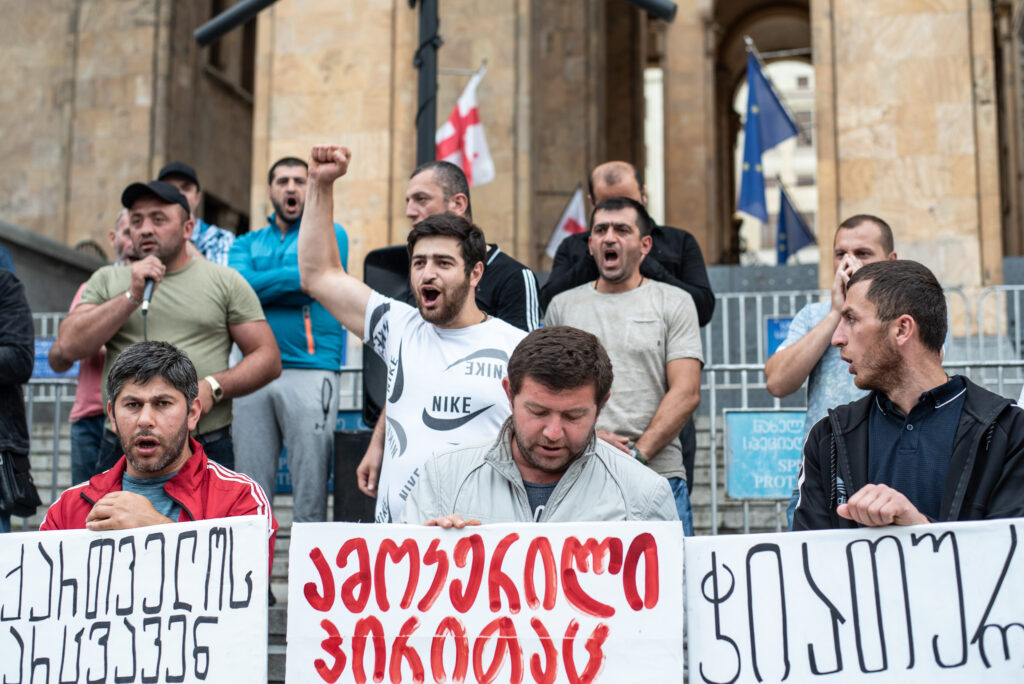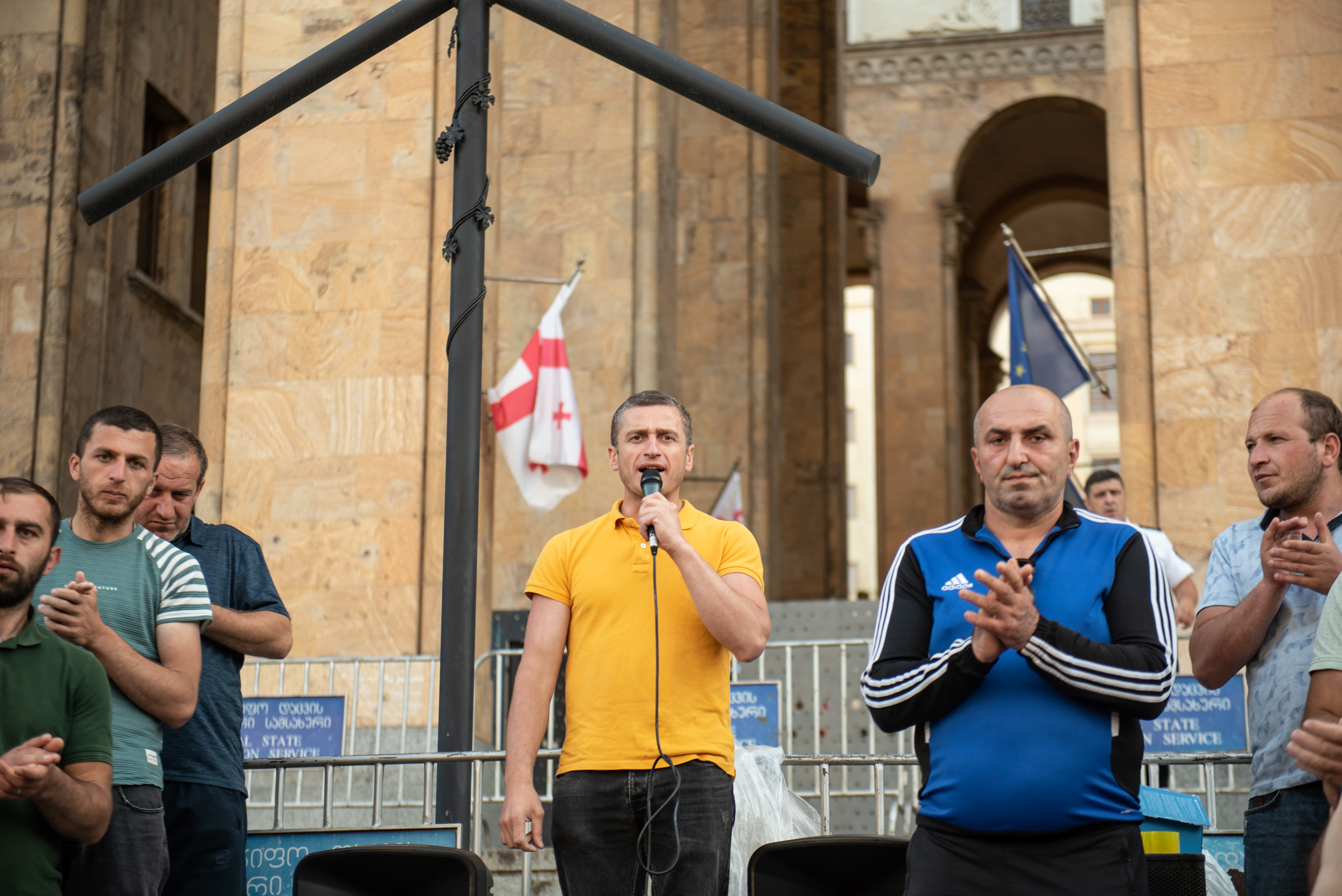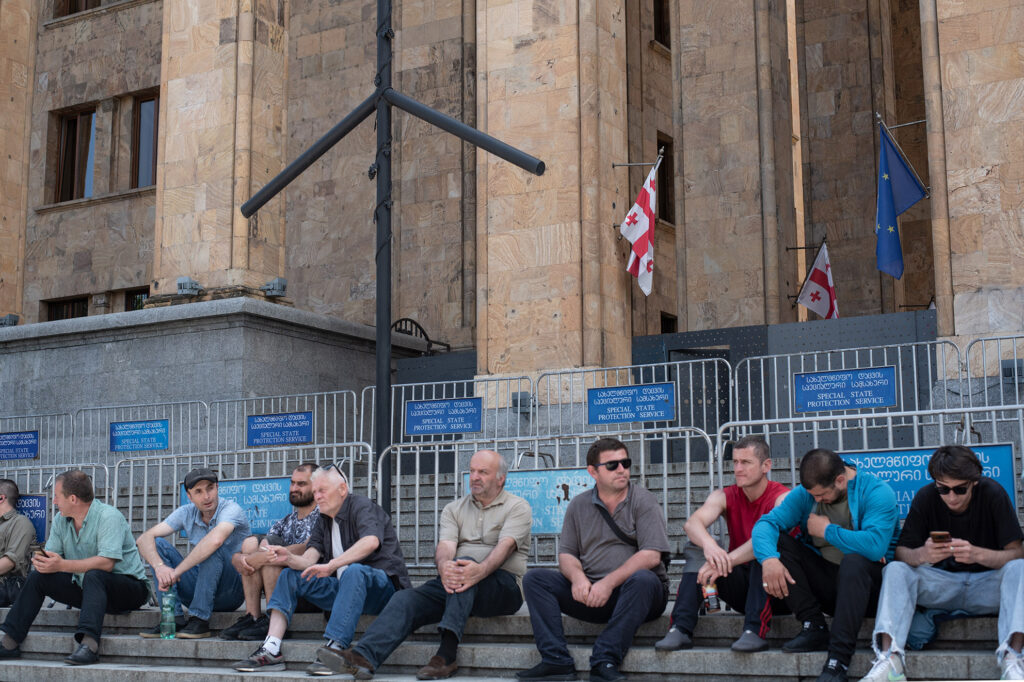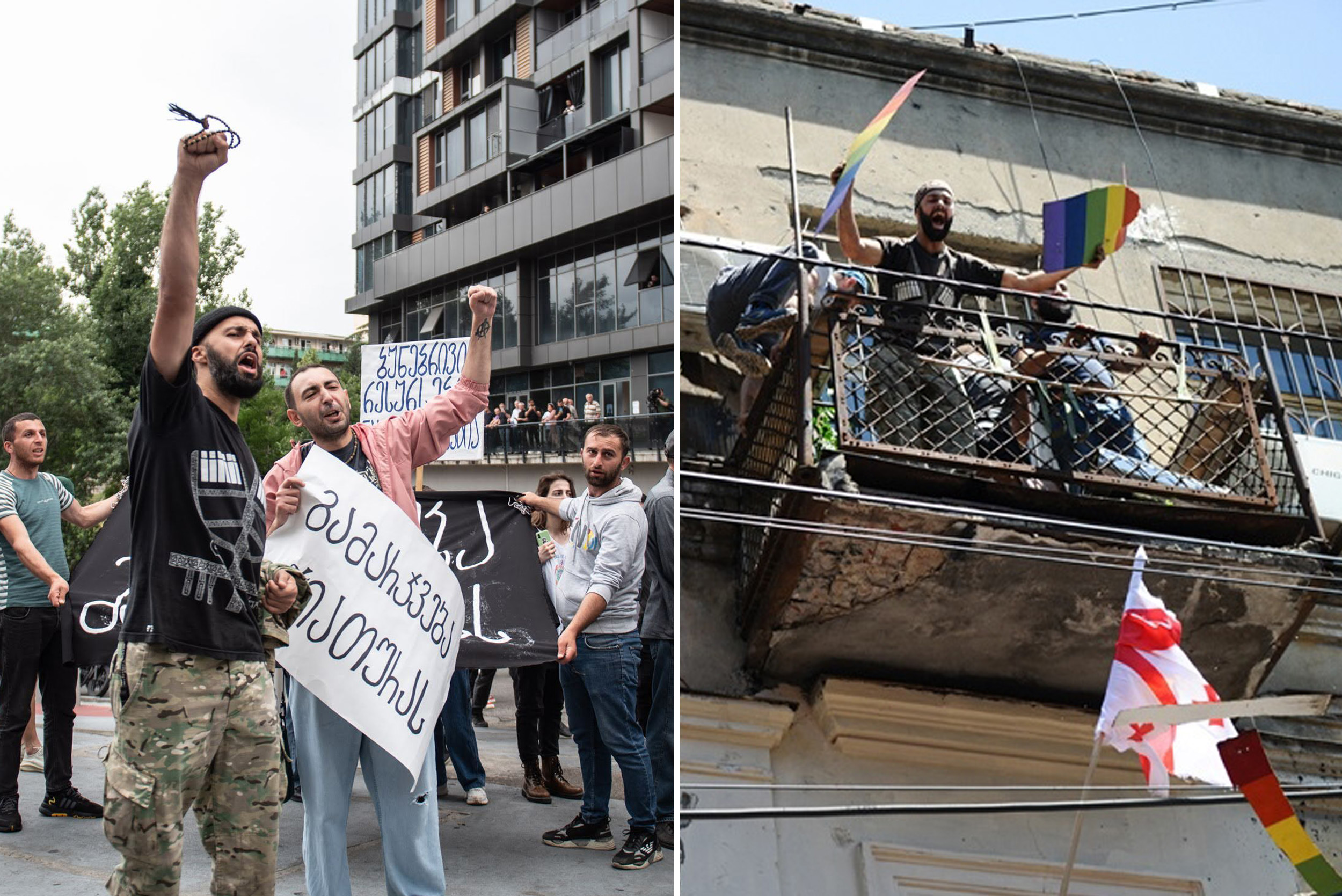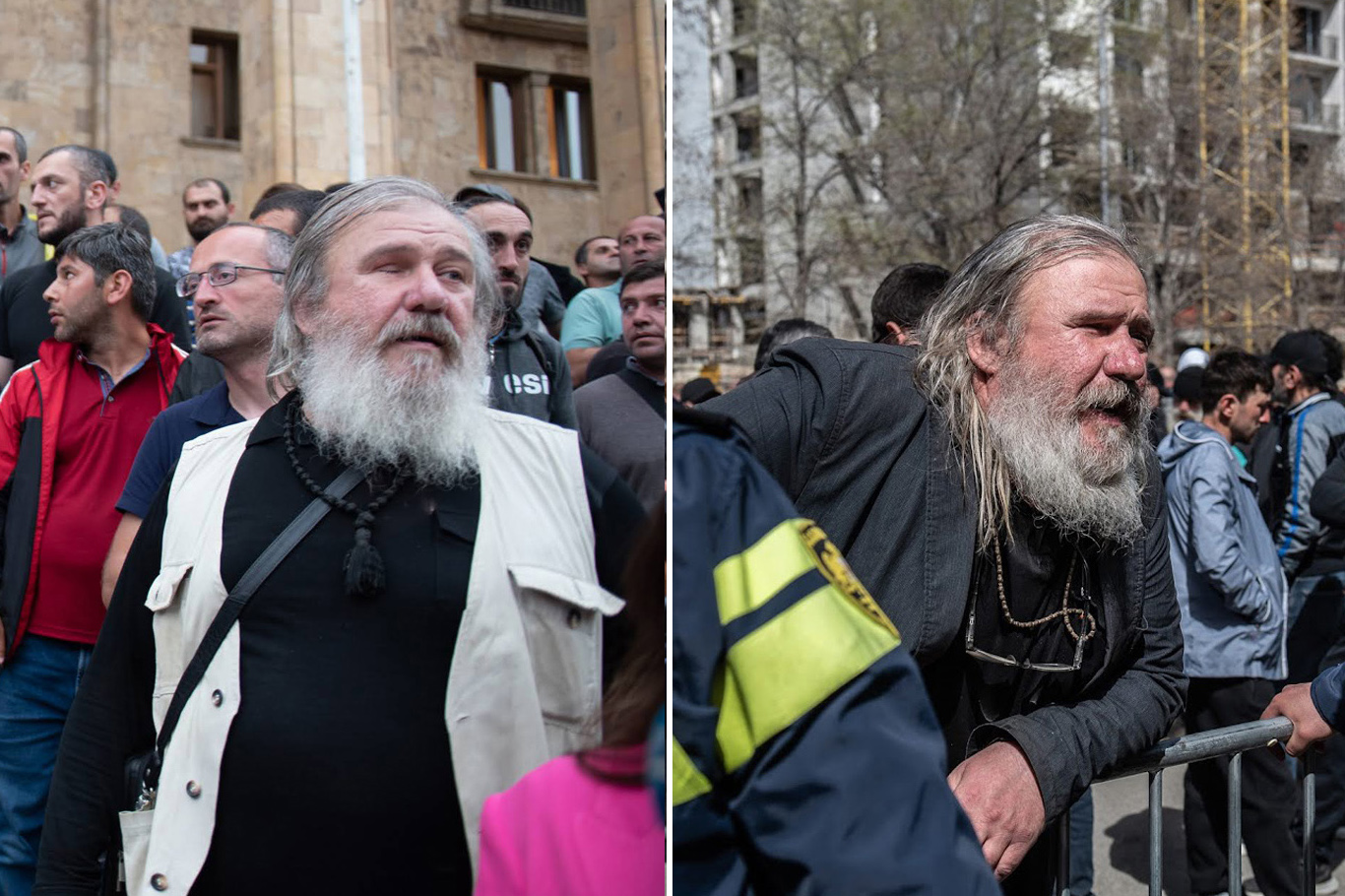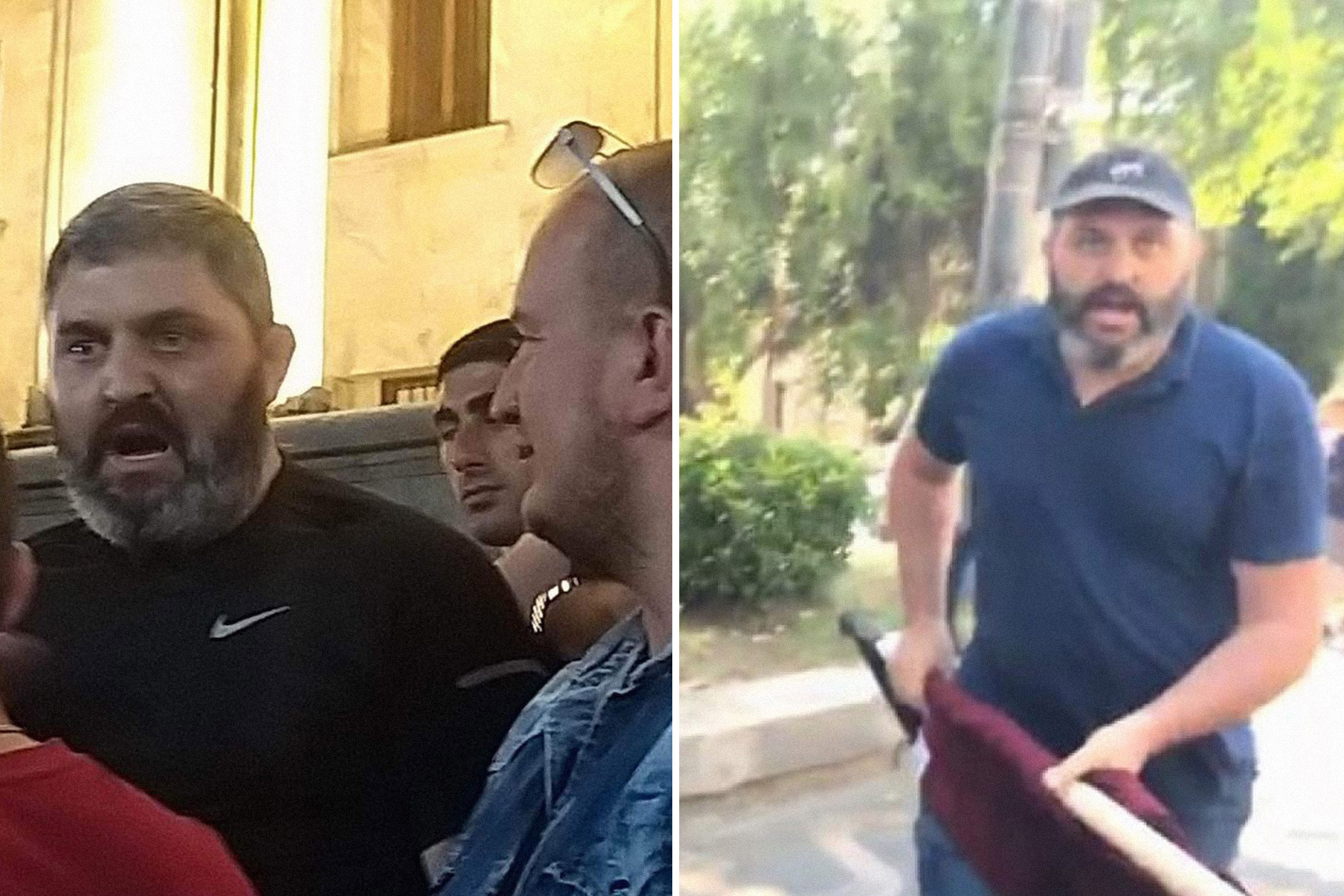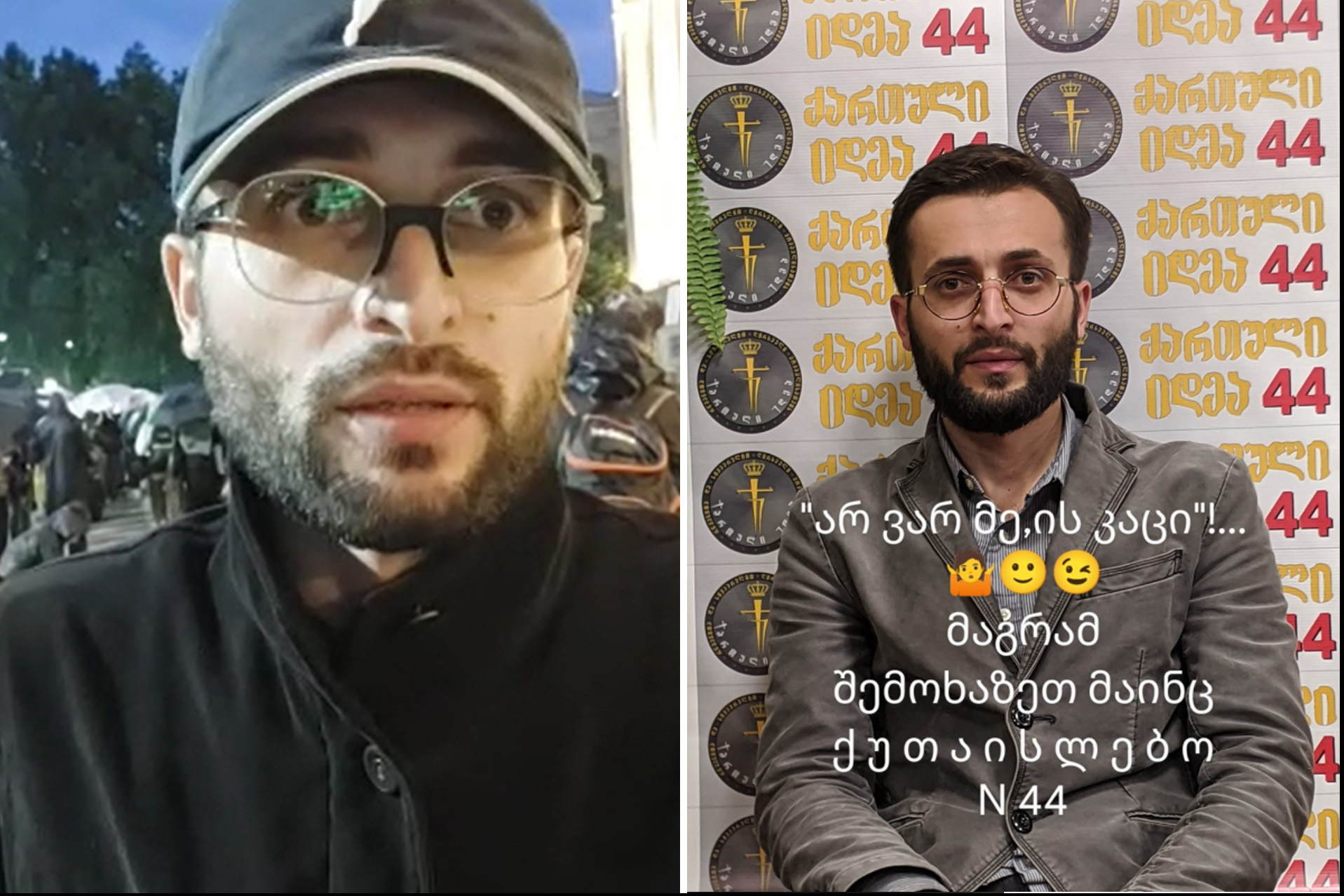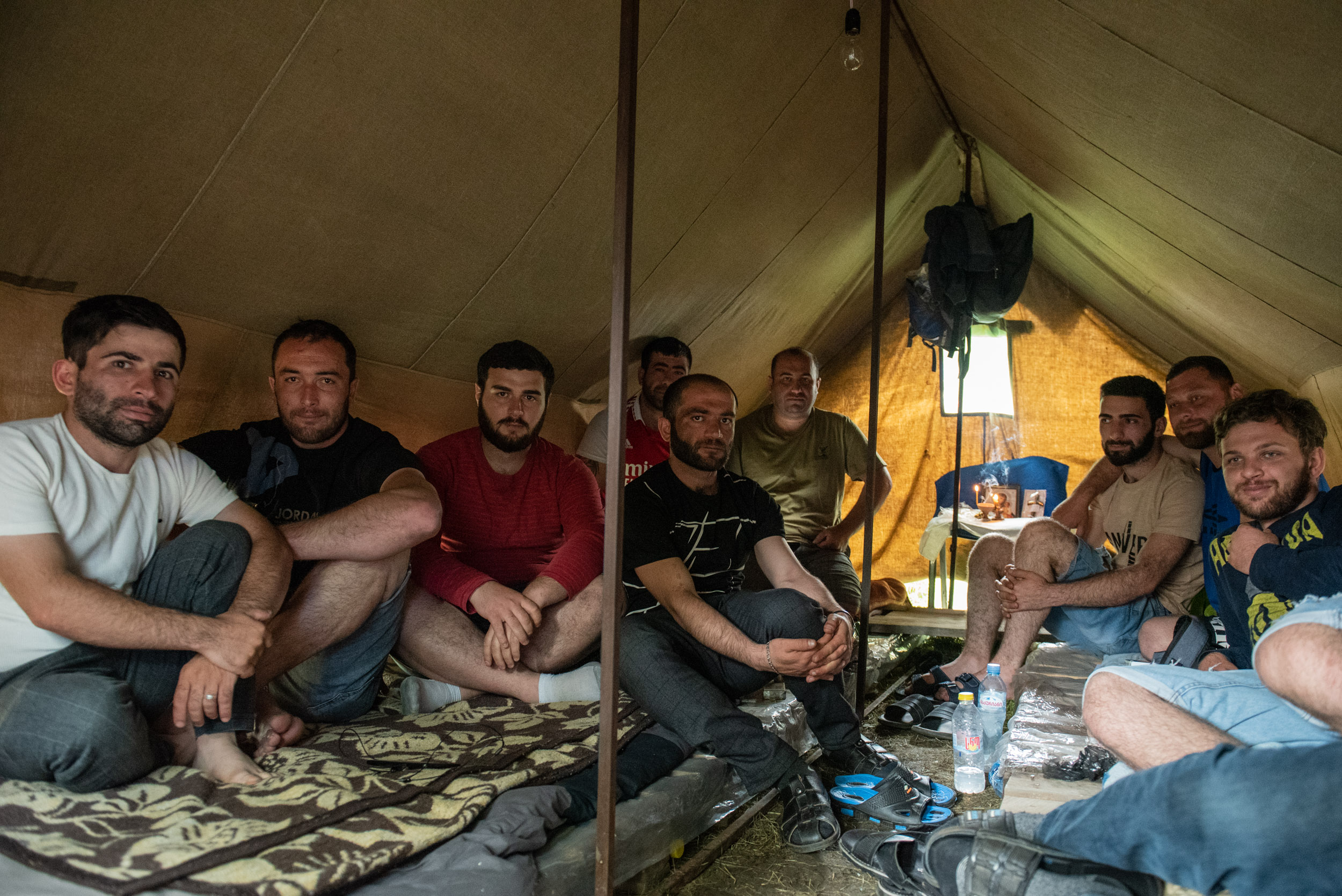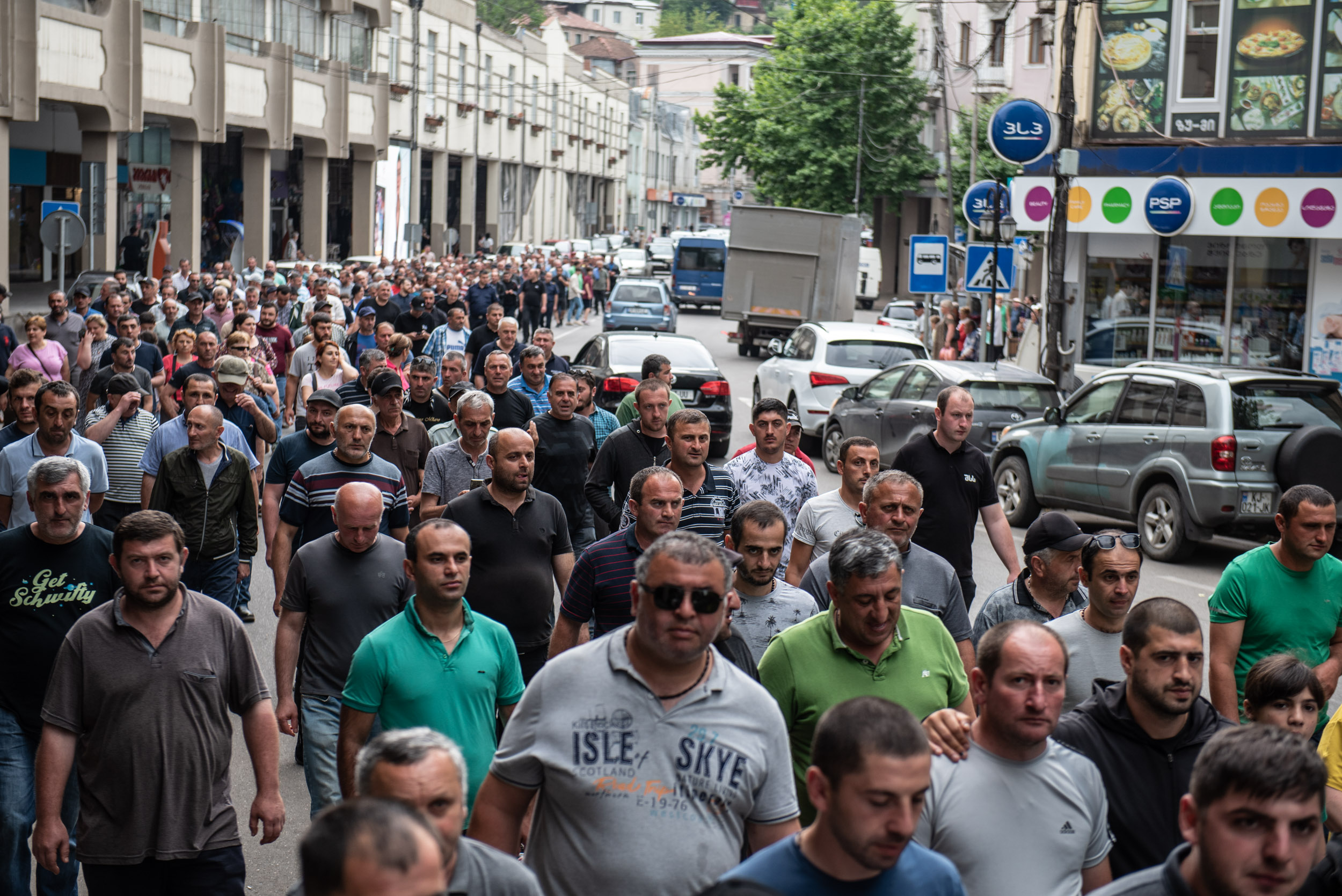It’s possible that I shall make an ass of myself. But in that case one can always get out of it with a little dialectic. I have, of course, so worded my proposition as to be right either way (K.Marx, Letter to F.Engels on the Indian Mutiny)
Monday, June 26, 2023
Thailand's exports of cassava and cassava products are estimated at 9 million tonnes this year, down from 11 million tonnes last year due to reduced output caused by drought, according to the Foreign Trade Department under the Ministry of Commerce.
VNA Monday, June 26, 2023
https://link.gov.vn/zlzL39pn

Bangkok (VNA) – Thailand's exports of cassava and cassava products are estimated at 9 million tonnes this year, down from 11 million tonnes last year due to reduced output caused by drought, according to the Foreign Trade Department under the Ministry of Commerce.
Ronnarong Phoolpipat, director-general of the department, said there is high demand for tapioca and tapioca products from Thailand when customers are willing to buy all available quantities, but this year Thai production has been affected by drought conditions, denting output.
He advised farmers not to rush harvesting small cassava roots that are unsuitable for sale during periods of high prices, as it may affect the overall quality.
In the first five months of this year, Thailand exported 4.73 million tonnes of cassava and cassava products valued at 7 billion USD, marking year-on-year decreases of 21% and 19%, respectively.
China remains Thailand's top export market for cassava products, accounting for 65% of the total.
Thailand is expected to import about 2.4 million tonnes of cassava chips from neighbouring countries, such as Laos and Cambodia, to meet the demand./.

Dozens of court hearings in Armenia were cancelled on Monday as lawyers went on strike to show support for their colleagues allegedly beaten up by police officers.
One of the lawyers, Karen Alaverdian, claims to have been subjected to “undue physical force” after trying to stop several policemen kicking and punching his client at the police headquarters of Yerevan’s central Kentron district earlier this month.
Armenia’s Investigative Committee effectively denied the allegations on June 13, saying that Alaverdian himself shoved and even hit the officers in a bid to free the criminal suspect. They had to briefly detain the lawyer, the law-enforcement agency said, adding that he was rightly charged with “hooliganism” and obstruction of legitimate police actions.
Armenia’s Chamber of Advocates voiced support for Alaverdian and demanded a proper investigation into the incident. The national bar association organized the one-day strike to protest against what it sees as an official cover-up of the incident. Dozens of its members marched to the Kentron police headquarters to demand the sacking of its chief officer.
“We believe that if the police service does not react strongly to this case it will implicitly take full responsibility for this situation,” said one of the protesters.

Two other lawyers claimed to have been ill-treated at another Yerevan police station in February while representing a teenage criminal suspect. Their allegations were likewise denied by the police and the Investigative Committee.
The chairman of the Chamber of Advocates, Simon Babayan, decried the fact that the police have not even suspended or taken other disciplinary action against any officers accused of assaulting the lawyers. He said prosecutors and investigators dealing with those incidents must also face disciplinary proceedings.
The Office of the Prosecutor-General announced, meanwhile, that it has assigned the probe of Alaverdian’s alleged beating to the National Security Service. Alaverdian welcomed that decision, saying he hopes that the incident will now be investigated in earnest.
“This problem is not so much about me or my client as about addressing the causes of all this and reviewing state mechanisms for countering torture,” the lawyer told journalists.
Human rights activists say that ill-treatment of criminal suspects remains widespread in Armenia despite sweeping law-enforcement reforms promised by Prime Minister Nikol Pashinian’s government.
As recently as on June 22, a man in Yerevan claimed that the Investigative Committee chief, Argishti Kyaramian, personally tortured and threatened to kill him following his arrest on June 17. A spokesman for Kyaramian denied the allegations.
The acting CEO of the Australian branch of PricewaterhouseCoopers (PwC) has faced a parliamentary inquiry, her first public appearance since her predecessor resigned over a tax-avoidance and conflict of interest scandal.
DW
The acting CEO of PwC (PricewaterhouseCoopers) Australia, Kristin Stubbins, told a parliamentary inquiry on Monday that staff will face "severe" consequences if they are found to have acted improperly in a scandal over sharing secret Australian government tax plans with major multinationals to help them avoid paying.
PwC is currently conducting an internal investigation and has already suspended a series of executives, some of whom it has named and others it has not.
Stubbins told the Senate for the state of New South Wales that once the investigation was complete, PwC would release all the identities of those found to have transgressed the rules.
"We will expect to announce consequences and you'll see that publicly, and they will be severe," Stubbins told the inquiry.
In the meantime, a criminal investigation is also running against the company.
It was Stubbins' first public appearance since taking up the job last month, when her predecessor resigned over the scandal.
It also came one day after PwC Australia issued a statement saying it was selling its public sector business for a symbolic sum of AU$1 (roughly €0.60 or $0.67) in a bid to ensure such a conflict of interest could not repeat itself.
What is the case about?
PwC is under fire after a former partner, Peter-John Collins, had access to information about Australian government plans to revise its tax laws — primarily in a bid to ensure multinational tech giants like Google, Facebook, or Amazon could not so easily avoid paying taxes in Australia.
He had signed a non-disclosure agreement with the government as he worked with it on the project, promising to keep the information secret.
But Collins shared the information with colleagues at PwC, who then used it to try to help private sector clients take preemptive steps to limit the new laws' impact on their balance sheets.

The case raises serious conflict of interest questions, with PwC a major service provider for Australian authorities.
"We failed the standards we set for ourselves as an organization and I apologize on behalf of our firm," Stubbins told parliament on Monday.
News of the indiscretions, which date back around a decade, first came to light early in the year.
But the probe has gathered pace over the last month or so, as the scope of the scandal started to become more apparent, in no small part thanks to the contents of internal company emails released by the inquiry on May 2.
Some of these partly redacted emails showed staff celebrating "the accuracy of the intelligence" on Australia's incoming tax plans provided by Collins, and how it had been giving them an edge with potential clients, particularly US-based tech multi-nationals.
In the last month, PwC Australia's former CEO Tom Seymour has resigned, criminal investigations have been launched, nine partners have been suspended without being named, and four have been suspended and identified — although two of them have publicly denied any wrongdoing.
Who are PwC and what do they do?
PricewaterhouseCoopers is one of the so-called "Big Four" consultancy giants, the largest professional services networks in the world, along with Deloitte, Ernst & Young, and KPMG.
These companies might only be genuine household names in specialist circles, but they're among the most significant in the world for the public and private sectors alike.
They provide services like auditing and consultancy (advice or analysis on all manner of issues, potentially), and their main clients tend to be national governments and large private sector businesses.
Their proximity to both sectors, and the comparable or overlapping services they provide to each, has long prompted questions of possible conflicts of interest.
Strictly speaking, none of the "Big Four" are single entities. Technically, they are networks of companies each operating in individual countries but all agreeing to coalesce under one global badge and to abide by the same standards. All four parent entities are UK-registered.
Combined, the four groups' revenues for the last financial year were in the region of $190 billion — to give a sense of scope, that's roughly comparable to the national GDP of Iraq or Greece.
Public sector work to move to new company
Last month, PwC had promised to ring-fence its public sector work from its private contracts going forward.
But on Sunday, its incoming CEO Kevin Burrowes issued a statement saying PwC would be splitting completely, selling its public sector operations for a symbolic sum of one Australian dollar to another company, Allegro.
A Green member of parliament, Abigail Boyd, said she worried this recent switch was nothing but a "PR move," and asked Stubbins if the decision amounted to an admission that PwC could not conduct government business in an "ethical manner."
"No, it doesn't," Stubbins said. "It's an announcement that looks at the situation and what is best for our people, and to ensure continuity of service to our government clients."
"There will be no question around management of conflict at all in a completely separate business," she said.
But these measures might not satisfy politicians in New South Wales. State Labor Senator Deborah O'Neill has already said that she will lead another inquiry into PwC given the new developments of the last few weeks. She has even hinted that the government is considering legislative or regulatory changes targeting the industry.
"We have a self-regulation model operating in this sector," O'Neill told Australian public broadcaster ABC. "I don't think it's too much to say that it's palpably failed."
msh/nm (AP, Reuters)
The minimum wage in Germany is set to rise in two stages from the current €12 to €12.82 per hour. The first increase to €12.41 is to take place next year, with a second boost to follow in 2025.
Germany is set to raise its minimum wage to €12.41 ($13.51) per hour beginning on January 1, 2024, based on new recommendations from the country's Minimum Wage Commission. The current minimum wage is €12 per hour.
A year later, on January 1, 2025, the minimum wage is to be raised again, to €12.82, according to the recommendations, which are almost always put into effect by the German government.
Every two years, the commission, which is made up of representatives from companies, trade unions and science, issues a recommendation on the future level of the minimum wage.
Labor representatives on the commission, however, opposed the minimum wage hike as insufficient for workers hurt by high inflation.
"The resolution comes at a time of weak economic growth and persistently high inflation in Germany, which poses great challenges for companies and employees alike," the commission said in its decision.
Rise is not enough, trade unions say
The German Trade Union Confederation (DGB) sharply criticized the decision. Board member Stefan Körzell, who is also a member of the Minimum Wage Commission, said that the €0.41 nominal raise would in fact amount to an enormous wage cut for the country's roughly 6 million minimum-wage workers, given high inflation.
Körzell said labor representatives had pressed for an increase to at least €13.50 but were rebuffed by company representatives and the chairwoman of the commission, Christiane Schönefeld.
Germany's Social Democrat-led coalition government last year bypassed the commission to hike the country's minimum wage from €10.45 to €12 in October. The increase had been a key campaign pledge of Chancellor Olaf Scholz.
Germany first introduced a statutory minimum wage in 2015. It was initially €8.50 per hour but has been increased repeatedly since then.
dh/nm (dpa, AFP)
Here lie 12,000 Nazi troops killed in Arctic battle. Now a memorial site devoted to Russian warriors killed in Ukraine is built alongside
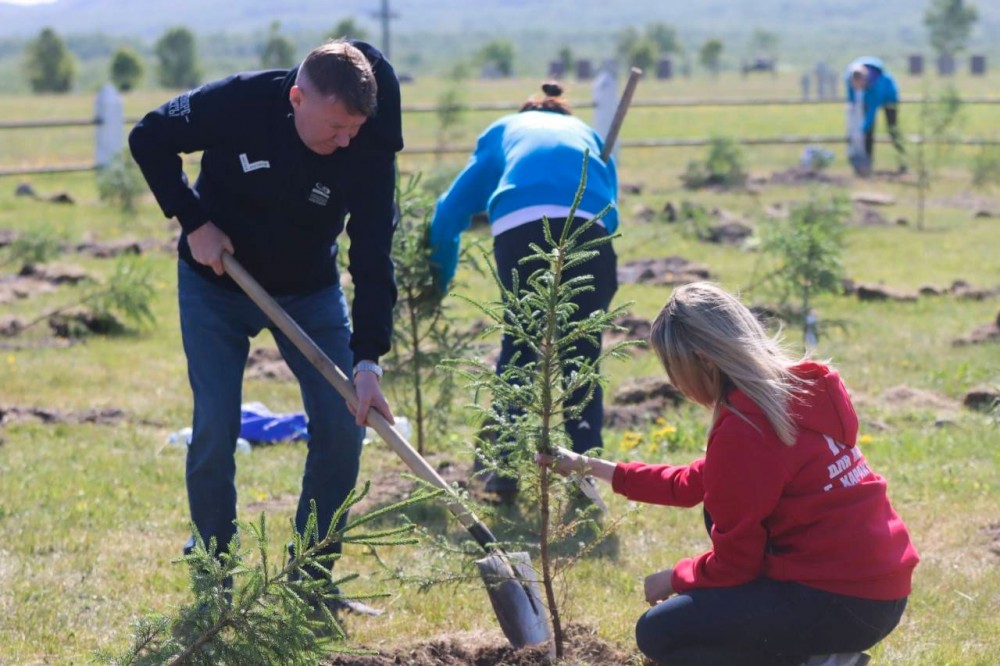
“We all acknowledge the importance of Victory Day and the Great Patriotic War [2WW], but it is no less important to talk about the heroes of today that have gone to protect the Motherland, its sovereignty and independence, the future of our kids and grandkids and sacrifice their own lives,” says Andrei Kuznetsov, the local Mayor of Pechenga.
The leader of the far northern municipality was one of several regional dignitaries that on the 25th of June assembled outside the town of Pechenga to plant trees for the new “garden.”
The site chosen for the project is the cemetery that houses about 12,000 of the German and Austrian men killed in Hitler’s attempt to conquer Murmansk in the period 1941-1944. Back at that time, Pechenga was called Parkkina and belonged to Finland. It was a key place for the German onslaught and housed a hospital and a seaport.
According to the organisers of the ‘memorial garden,’ a total of 250 pine trees were planted alongside the cemetery. All of them were marked with the name of a soldier killed in Ukraine.
It is likely that the 250 names belong to men that either come from the Murmansk region or served in regional brigades. Only few kilometres from the graveyard and the new ‘memorial garden’ are the bases of the 61st Naval Infantry Brigade and the 200th Motorised Rifle Brigade. Both of the brigades have suffered major losses in the war, and a Norwegian intelligence report estimates that their military capacity is today reduced to only about one fifth of their former power.
Among the names shown on photos from the ceremony is Andrei Olegovich Krasnov, a soldier from Olenegorsk, who was killed in early 2023.
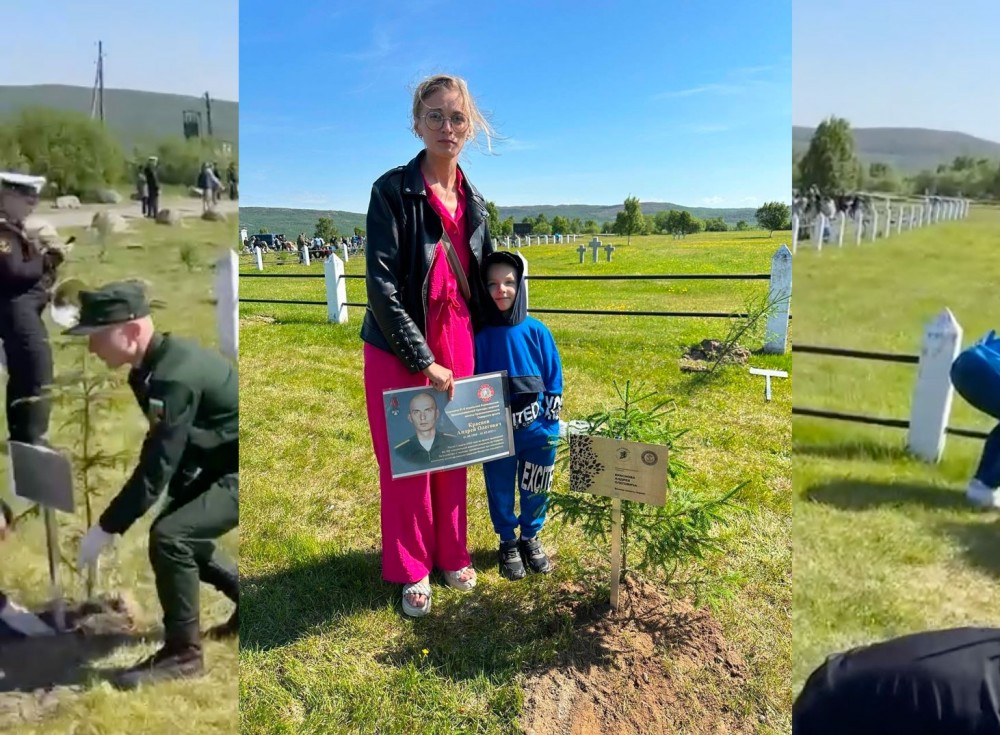
Several hundred local men are believed to have vanished in the war. Some of them are identified by the Barents Observer and included in news reports.
Among the latest local names added to the quickly growing death lists are Aleksandr Martynov and Mikael Aliev, both of them originally workers in the Severny nickel mine in Zapolyarny.
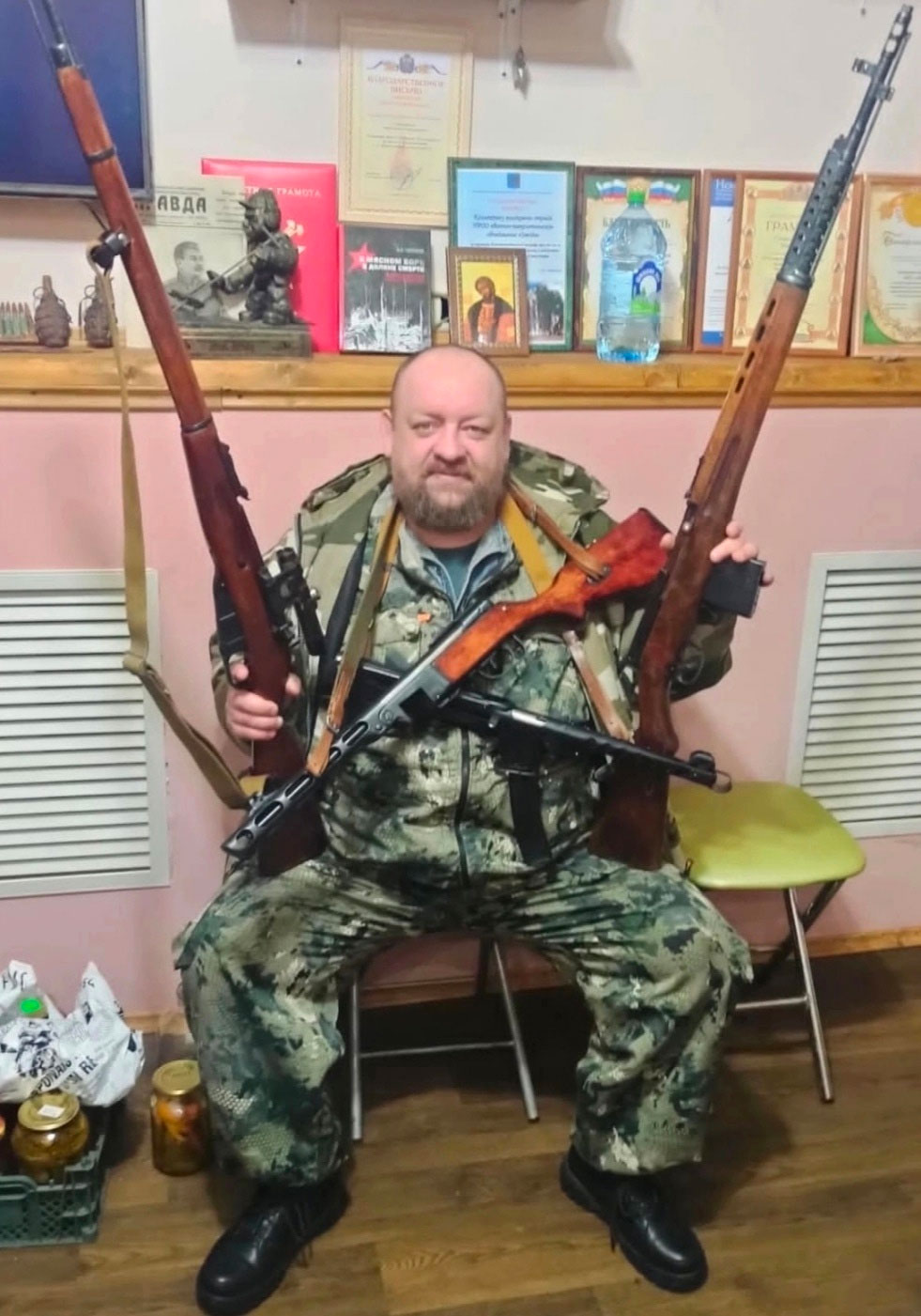
Among them is also Sergei Kalyaganov, a local war veteran with combat experience from Chechnya. Kalyaganov operated under the nickname “Hans” and was part of a local military-patriotic group.
In Russia’s perverted narrative about the war, it is all about the “denazification” of Ukraine.
Paradoxically, in the new ‘memorial garden’ the name plates of Russian men killed in Ukraine stand immediately alongside the graves of Nazi warriors killed in the 2WW.
“The memorial garden will immortalize the memory of participants in the special military operation, and everyone that passes by will remember them,” says Pechenga Mayor Kuznetsov. The local politician is known for his strong pro-war stance and drives a car marked with a large “Z,” the Nazi-inspired symbol of Russia’s war against its neighbouring country.
The area that today is known as Pechenga was site for brutal battles during Hitler’s war against the USSR. For most of the war, the frontline was about 40 km further east, along the Zapadnaya Litsa river
The Germans buried many their fallen men on the sandy stretches where the Pechenga river runs into the Pechenga Bay. The graves were dug by Soviet prisoners of war.
After the war, Soviet tanks bulldozed the graves. Then, in the 1990s, the cemetery was restored with German and Austrian funding and the site is today known as ‘Land of Unity.’ Also 600 Soviet troops are buried on site.
The graveyard is located on military land and access to the area is restricted.
Azerbaijani police lock down village after environmental protests
Entry and exit to the village of Soyudlu has been blocked since Wednesday, after riot police clashed with local people protesting environmental damage caused by a goldmine. Ten protesters were detained, while 15 were reportedly injured in confrontations with riot police.
Two journalists are also reported to have been detained and had their phones confiscated while covering the protests on Thursday.
On 20 June, over a hundred residents of the village of Soyudlu in the Gadabay District gathered to protest pollution of the area by a mining company, assembling near an artificial lake reportedly used to dump acid waste from the mine.
They were also protesting plans to construct a second, similar artificial lake in the village. Protesters claimed that waste from the mines has caused significant damage to human health and the nature of the region.
Residents reported that around 15 people were injured and five detained on Tuesday after riot police were called in to disperse the protesters. Five more were reported to have been detained the following day, as protests continued.
Videos from Soyudlu showed police using tear gas, pepper spray, and physical violence against those protesting. In a widely-shared video, an elderly woman walking away from riot police is pepper-sprayed in the face, with later footage showing her lying on the ground as other protesters attempt to assist her.
Many Azerbaijanis expressed outrage over the footage online, and demanded that police be punished for using violence against peaceful protesters.
On Wednesday, the Interior Ministry and the head of the region both acknowledged that protesters had been injured, but suggested that protesters had acted violently and police had shown restraint in their handling of the situation.
The following day, Minister of Ecology and Natural Resources Mukhtar Babayev visited Gadabay District and stated that the issue would be investigated.
‘Monitoring has already started. We will try to quickly clarify all questions and prepare and present the necessary proposals to the Cabinet of Ministers’, said Babayev.
The gold mines are officially operated by a British company, Anglo Asian Mining Plc, managed by Iranian businessperson Reza Vaziri. However, a 2016 investigation by the Organised Crime and Corruption Reporting Project (OCCRP) found that the mines were in fact owned by the two daughters of Azerbaijan’s President Ilham Aliyev.
Poisoned waters
The protesters were objecting to pollution of the area by waste from the mines, which they state has caused significant damage to the health of local people.
Residents stated that a lake in the village, which has allegedly been used to drain acid and dump waste from the goldmines for around 11 years, was damaging the nature around it and emitting toxic fumes, making it hard to breathe and causing lung damage.
Protesters chanted and carried signs saying ‘natural waters are being poisoned’, ‘The River Kur is being poisoned’, and ‘people die of lung disease at the age of 50’.
They also voiced their objections to plans to construct a second artificial lake in the area.
‘The inside of [the first] lake is acid. It’s burned nature in a radius of 100 metres. In order to increase gold production, they are now building a second lake in the village’, one protester told journalists.
She added that this lake would be close to a river.
‘Can you imagine what that means? Nature will be destroyed as far as Shamkir, Tovuz, and Ganja.’
The protests continued for a second day on 21 June, with police obstructing efforts to resume protests on Thursday. On Wednesday night, police blocked roads to the village, which remain closed for entry and exit to all except for residents.
Residents told local media that ten protesters had been arrested in total on Tuesday and Wednesday, and that their relatives were not being allowed to meet them.
One woman told journalists that all of those detained at the protests were ‘imprisoned for 20 days’. She added that she was not allowed to visit her son, who had been detained.
On Wednesday afternoon, the head of Gadabay District, Orkhan Mursalov, met with the protesters but claimed that their concerns were unfounded and based on ‘disinformation’ spread on social media.
‘This grandmother is 78 years old’, said Mursalov, referring to one of the woman seen being pepper sprayed by police. ‘If the lake were poisonous, she wouldn’t be louder than me at this age.’
‘What do we know about the toxicity of cyanide? Who says it? This is disinformation spread on social networks.’
He added that there were currently over 50 pregnant women in the village, and the local administration had not received any ‘appeals’ from them regarding issues related to pollution.
He also stated that while he knew that some protesters had been injured the previous day, they had thrown stones at the police, which no one had the right to do.
On Wednesday, Azerbaijan’s Interior Ministry spokesperson stated that an investigation was being conducted into the use of pepper spray against one of the protest participants.
‘The police officer was overcome with emotion and committed a serious offence against the woman, and we accept it’, said Elhad Hajiyev.
However, he added that women taking part in the protests had made many ‘inappropriate statements and illegal actions’.
‘It is clear that the police officers showed high restraint and discipline towards those women’, said Hajiyev. ‘How many times have police officers been subjected to illegal acts unbecoming of an Azerbaijani woman? No special measures were applied against those women, nor was the issue of punishment raised.’
Opinion | The Ingush are leaving Russia
A Russian collapse following their defeat in Ukraine is inevitable, and when it comes, the Ingush are ready to forge their own future.
The words of the Marquis Astolphe de Custine — ‘Russia is a prison of peoples’ — is understandable to the Ingush from the first to the last letter due to our rich prison experience inside a country that has changed names and sizes many times, but has never changed its inhuman essence.
Over 250 years, the Ingush have survived one complete and three partial deportations, during which tens of thousands, a significant proportion of our population, perished in massacres and man-made famines.
The generals in tsarist Russia complained: ‘what right do these savages have to live on such a beautiful land?!’ Russian troops carried out countless punitive expeditions, razing villages and killing people in the thousands.
The communists even declared the Ingush to be enemies of the people, evicting everyone to the last to Siberia and Central Asia.
[Read on OC Media: Opinion | Russia’s death train rolls through Chechnya and Ingushetia]
The 21st century did not bring changes — and the Ingush met the Russians once again in the Chechen wars.
Still today, kidnappings by the security services, extrajudicial executions, and ongoing ‘special operations’ with victims both among civilians and members of the armed resistance continues.
Russia sent Ingush employees to law enforcement agencies to expand the ‘Russian World’ in Georgia, Crimea, and Donbas.
But the last straw for the Ingush was the Russian army mobilisation for the war in Ukraine, when it became apparent that Russia would not emerge victorious from this war, and that this would lead to another collapse of the empire.
The Ingush Independence Committee
The Ingush have already experienced two collapses of Russia in which unpreparedness led to chaos. This time, in December 2022, a group of Ingush emigrants living in Turkey, the EU, and the Middle East decided to prepare for the creation of their state, army, and authorities. On 13 December 2022, the Ingush Independence Committee was born in Istanbul.
It included several dozen people who decided to firmly unite Ingush people of all political views around the idea of developing a free independent state of Ingushetia after the collapse of Russia.
The names of the committee members, except for Ahmad Ozdo, who read out the declaration of independence of Ingushetia in the European Parliament, and press secretary, Ruslan Evloev, are kept strictly secret over safety concerns.
These concerns are not for the safety of the members themselves, but of their relatives in Ingushetia who would be abducted without fail. They would face torture, and, at best, be released after public curses and insults, at worst, their names would join the long list of the missing.
None of the committee came for fame or personal gain, because joining now there is only a risk to life.
Ingushetia has no future in Russia
All decisions in the committee are made collectively, not individually. A decision was also made to form the armed forces of Ingushetia — a general staff was created. It includes Ingush officers who took part in the war in Chechnya and Ingushetia. The process of creating military units is underway.
We have no illusions that the army of Ingushetia will be able to liberate the republic from occupation. The military is being created to protect the population of Ingushetia from external and internal enemies in the face of a gang of Wagnerites, Kadyrovites, and others who have already committed a vast number of war crimes in Ukraine. After the collapse of Russia, Ingushetia would likely be no exception.
Many mistakenly believe that the goal of the committee is to destroy Russia; there are no inadequate people who would believe that the smallest territorial republic has the strength to do this.
Russia cannot win the war in Ukraine, but neither Putin nor the Russian people can afford to lose, and they will fight to the last, that is, until their wholly corrupted country collapses. Russia will fall apart independently — anyone can deny this or pretend that nothing will happen anywhere, but not in the national republics.
Because the people of Russia who are alien to this war, who cannot study their native language in schools, who feel like second-class citizens in their country, now have to think about a future without Russia. They must now think about life without serving as cannon fodder for Russian imperialism, because their future is not in Russia, and not with Russia.
‘They demand to keep everything as it was’
But even many of the ‘good Russians’ among those who oppose Putin and his regime do not want to hear and understand this.
So I debated with the Russian opposition within the walls of the Hudson Institute in Washington at the Free Nations of PostRussia Forum, where I was authorised to represent the Ingush Independence Committee.
They demanded to keep everything as it was — Russia within the borders of 1991. I have not heard what they will do with Abkhazia, South Ossetia, or Transnistria, but I believe there they will insist on the will of the people. Still, they consider any expression of the will of the peoples of Russia exclusively as ‘separatism’.
Neither the Kremlin nor the Russian opposition is willing to listen and accept that we, and thousands of others in Russia, are tired of them.
The most important thing that those ‘good Russians’ cannot understand is that for us, life under their domination in all spheres, with another state collapse every hundred years or so — this is not our choice.
And it is unlikely that you will find a people on earth who would like to live in a state where in one century, God and private property are abolished, in the next we are a stronghold of Orthodoxy with a leader richer than a hundred Arab sheikhs.
It looks like madness, but the Russian opposition is again promising us a ‘beautiful Russia of the future’ with the same zeal and passion with which the Bolsheviks promised communism a hundred years ago, and 200 years ago, the tsarist generals told us that a civilised life awaits us in a slave-owning empire full of blessings and prosperity.
We have no connection with the Russians
The non-Russian peoples of Russia are unlikely to find common ground with the Russians, because the Russians need an empire, but we do not.
The Ingush, the Chechens, the Daghestanis, or the Yakuts with the Bashkirs are not interested and do not need the occupation of Crimea or Donbas, control over Transnistria, and neighbouring peoples who speak their language and celebrate 9 May.
Socially and culturally, Azerbaijan is closer and more understandable to us. We are closer to Georgia, where people think about a future vacation, repairing a house, or buying a new car, not about whether Wagner will capture Bakhmut and then how to celebrate this war crime as a victory.
The history of the Ingush in tsarist, communist, or ‘democratic’ Russia is one big criminal case against Russia in its crimes against the Ingush people, whose only fault is their unwillingness to die out or to be part of a state of the Russian people, obedient to the Kremlin.
The Committee of Ingush Independence today speaks from the side of civilisation, a normal economy, and the rule of law, which will have to be established in Ingushetia to replace the imperialism, corruption, and other components of the Russian world.
Magomed is a journalist, human rights activist, and expert on the North Caucasus and former USSR. He has worked for RFE/RL, Prague Watchdog, the UN in Chechnya and Ingushetia, and the OSCE Mission to Ukraine.
By Ismi Aghayev
Three feminist activists and one journalist were detained by security at the US Embassy in Baku and handed over to police after holding and live-streaming a peaceful protest against police brutality in Gadabay.
The activists were attending an early Independence Day event at the US Embassy on 23 June.
During the reception, Gulnara Mehdiyeva, Sanubar Heydarova, and Narmin Shahmarzade removed their scarves to reveal black hands drawn on their necks.
They stood next to Azerbaijani MPs and other officials while describing recent events in Gadabay and criticising ‘representatives of the government and the opposition of Azerbaijan’ who were gathered at the event.
Ulvi Hasanli, the founder and director of the independent media outlet Abzas, filmed and live-streamed the protest.
‘All human rights are not protected in Azerbaijan, on the contrary, all human rights and rights are suppressed’, said Sanubar Heydarova. ‘In a civil manner, we wanted to draw attention to the human rights violations happening right here in Azerbaijan, especially the ongoing repression of the Gadabay people by the government against the fulfilment of their demands.’
The village of Soyudlu, in Gadabay District, has been locked down since 21 June, with entry and exit forbidden to all except for residents of the village. This followed protests by local people against pollution by a goldmine in the region.
[Read more: Azerbaijani police lock down village after environmental protests]
Shahmarzade told OC Media that embassy security guards approached the activists as they were speaking and demanded that they leave the premises. According to the activists and at least one eyewitness, they were then detained by US Embassy security in the entrance of the embassy until police arrived.

The activists were handed over to the police, as was Hasanli, but released shortly after being interviewed at a police station.
Speaking to OC Media, Hasanli stated that he was treated roughly by embassy security guards.
‘Five or six embassy guards twisted my arms and handed me over to [the] police’, said Hasanli.
‘I did not expect such violent behaviour on the territory of the embassy’, said Hasanli. ‘This is interference with my journalistic activity. The embassy of a country that talks about democracy and human rights, and freedom of the press should not have behaved like this, it was a very shameful act.’
Footage from outside the embassy shows Hasanli being taken to a police van by four police officers.
After the embassy staff ejected the activists and journalist from the premises, at least ten Azerbaijani political and cultural figures left the event in protest.
‘The removal of journalists and activists by the guards of the embassy and their handing over to the police was, to put it mildly, just shameful’, wrote writer Zumrud Yaghmur. ‘As soon as I heard the news, I followed [them].’
Afiaddin Mammadov, a member of local pro-democracy group, the Democracy 1918 Movement, was also among those to leave the event in protest.
Mammadov confirmed to OC Media that embassy staff physically removed Abzas founder Ulvi Hasanli while ordering others to follow.
‘The feminists were protesting in a civilised way’, he added.
‘Ulvi Hasanli was filming their protest as a journalist. The security service of the embassy approached him and demanded he stop the live broadcast. After Ulvi stopped the broadcast, the guards took Ulvi’s arms. They grabbed him and took him to the entrance gate of the embassy.’
‘Ulvi Hasanli and the feminist activists were held at the embassy entrance until the police officers of the 21st police station arrived. After the police officers arrived, the embassy staff handed over Ulvi and the feminists to the police officers personally’, he said.
A spokesperson for the US Embassy neither confirmed nor denied that the activists and journalist were physically removed from the event and handed to police.
The spokesperson told OC Media that only portions of the event were open to the media and on the record.
‘Much of the night was a chance to network, share the diversity of the United States, and celebrate the official event’, they said.
‘The US Embassy supports fundamental freedoms, including the right to protest and freedom of speech.’
26 June 2023
By Mariam Nikuradze
A strike by manganese miners in the central Georgian town of Chiatura has come to an end after 18 days, with the mining company agreeing to key demands from the workers.
On Saturday, mining firm Georgian Manganese agreed to reverse new ore quotas that miners had described as ‘inhuman’. They also agreed to honour their contractual obligation to increase salaries by 12%, in line with inflation.
The miners went on strike after the company announced that workers would have to mine up to 40% more ore over shorter shifts. Both miners and labour activists said such demands were impossible to meet and would effectively result in a pay cut for miners.
The mines will resume work from 1 July.
[Read more on OC Media: ‘Thousands’ of miners go on strike in Chiatura]
The company also agreed to honour their legal obligation to provide paid holidays and sick leave. They also promised to reimburse strike days at 60% pay and to improve safety conditions in the mines.
A commission consisting of representatives of the company, workers, trade unions, and government officials will also be set up to decide on a range of other complaints, including improving health insurance, better safety equipment, and deferring bank loans for employees.
Advertisements
The strike began on 8 June and on 12 June, 10 miners went on a hunger strike. They were joined by an eleventh person several days later who sewed his mouth shut, while another sewed his eyes shut.
As negotiations faltered, a portion of the miners travelled to the capital Tbilisi on 19 June, where four more miners started a hunger strike the next day.
[Read more on OC Media: In pictures | Portrait of a mass hunger strike]
After the deal was reached, Tariel Mikatsadze, one of the striking workers, addressed those gathered outside parliament and reminded those gathered that they were originally demanding a 40% raise.
‘Considering that our friends are on a hunger strike for the 13th day, that we are on strike for the 19th day, we decided to agree to an 11.9% increase according to the inflation’, he said, adding that this proved that increasing their salaries was not their only principal demand.
Several of the protesters outside parliament told OC Media that given that some of the miners were putting their health at risk in the hunger strike, this was the bare minimum they could agree to
Mikatsadze said that it was now crucial to ensure the company also fulfils the remaining demands, which will be discussed in the new commission.
‘If the same thing happens as happened after the mass strike in 2019, if they lie to us again, if they drag these issues over time, we will need your support again’, he added.
The Social Justice Center, a local rights group that assisted the workers during the strike, warned that the agreement did not include certain issues that Georgian Manganese was legally obliged to resolve.
‘Unfortunately, such basic issues as improving the daily meals of miners, restoring the functionality of the sanatorium, resolving loan interest issues with the bank, and renewing equipment to protect labour safety were subjected to commission work.’
‘These issues concern the protection of labour rights at the basic level and they need to be seen in a legal perspective and immediately enforced and ensured’, the statement read.
The miners left Tbilisi on the evening of 24 June, with those who were on a hunger strike transferred to a hospital to recover.
Georgian Manganese also issued a statement confirming that the company would increase raise salaries according to inflation, something they previously agreed to in the collective agreement signed with workers in 2019.
23 June 2023
By Mariam Nikuradze
Manganese miners from the central Georgian town of Chiatura have for weeks been on strike over their working conditions. But since a portion of the strikers moved their protest to the capital Tbilisi, far-right figures have been seen attempting to ingratiate themselves into the protests, leaving the miners unsure who to trust.
When several dozen striking miners and their supporters arrived in Tbilisi on 19 June, their intention was to bring wider attention to their cause. And the strike resonated with many Georgians, especially as images of miners who had sewn shut their mouths in despair emerged.
Some of those to join their demonstration in solidarity were young people who previously protested, and defeated, the government’s planned foreign agent law.
One was Lucas Ablotia. Along with several of his friends, Ablotia was outside the parliament demonstrating in support of Lazare Grigoriadis when the miners arrived in Tbilisi.
‘We learned that miners were protesting inhuman treatment, including violations of labour rights. Obviously, I wanted to express solidarity and would stand with them as a citizen’, Ablotia told OC Media.
Ablotia was draped in an EU flag and held Georgian and Ukrainian flags. ‘We always stand at protests like this’, he said.
Advertisements
But Ablotia and his friends weren’t welcomed with open arms.
‘Several people approached me and spoke to me in a bad tone, that I was ruining this protest because I stood with the EU flag, that the EU is depraved, that Ukraine started the war and it’s Ukraine’s fault what is happening in Ukraine.’
‘They accused me of being a supporter of Misha [former President Mikheil Saakashvili]. They told me that Misha started the war in 2008, and things like that.’
‘It is not safe to be there anymore. They threaten us, they yell at us. They told me I am a Mishisti faggot and things like this.’
In the following days, the young people did not attend the miners’ demonstration.
But Ablotia is not sure who it was that was harassing them. At least one was scolding them ‘in the name of the miners’, he said.
‘We spotted some fascist groups there’, he added.
Extremists at the picket line
While following the miners’ strike in Tbilisi, OC Media identified at least five people affiliated with the far-right extremist group Alt Info hanging around the protest. On several occasions, we overheard them attempting to discredit the young people present, often using homophobic language.
One was Giorgi Odzelashvili, who marched with the miners from parliament to the offices of the mining firm, Georgian Manganese.
Odzelashvili participated in the attack on the Tbilisi Pride office during the 5 July 2021 homophobic riots. He is active on Facebook, especially on a page called ‘Conscience Boys’, which advocates for the release of the handful of people arrested over the 5 July violence.
Another is Irakli Khomasuridze, a familiar face at violent far-right demonstrations.
In June 2022 Khomasuridze was convicted of attacking liberal politicians Khatuna Samnidze and Davit Berdzenishvili. He also threatened OC Media’s director and journalist, Mariam Nikuradze, at a protest outside Tbilisi City Court where some of those arrested over the 5 July violence were on trial.
Zaza Mchedlidze, who was convicted of attacking journalists on 5 July, was also spotted at the miners’ protest.
Gocha Surameli and Ramin Abesadze, both affiliated with Alt Info, were also present at the miners’ protest. Both were broadcasting live coverage and interviewing some of the miners.
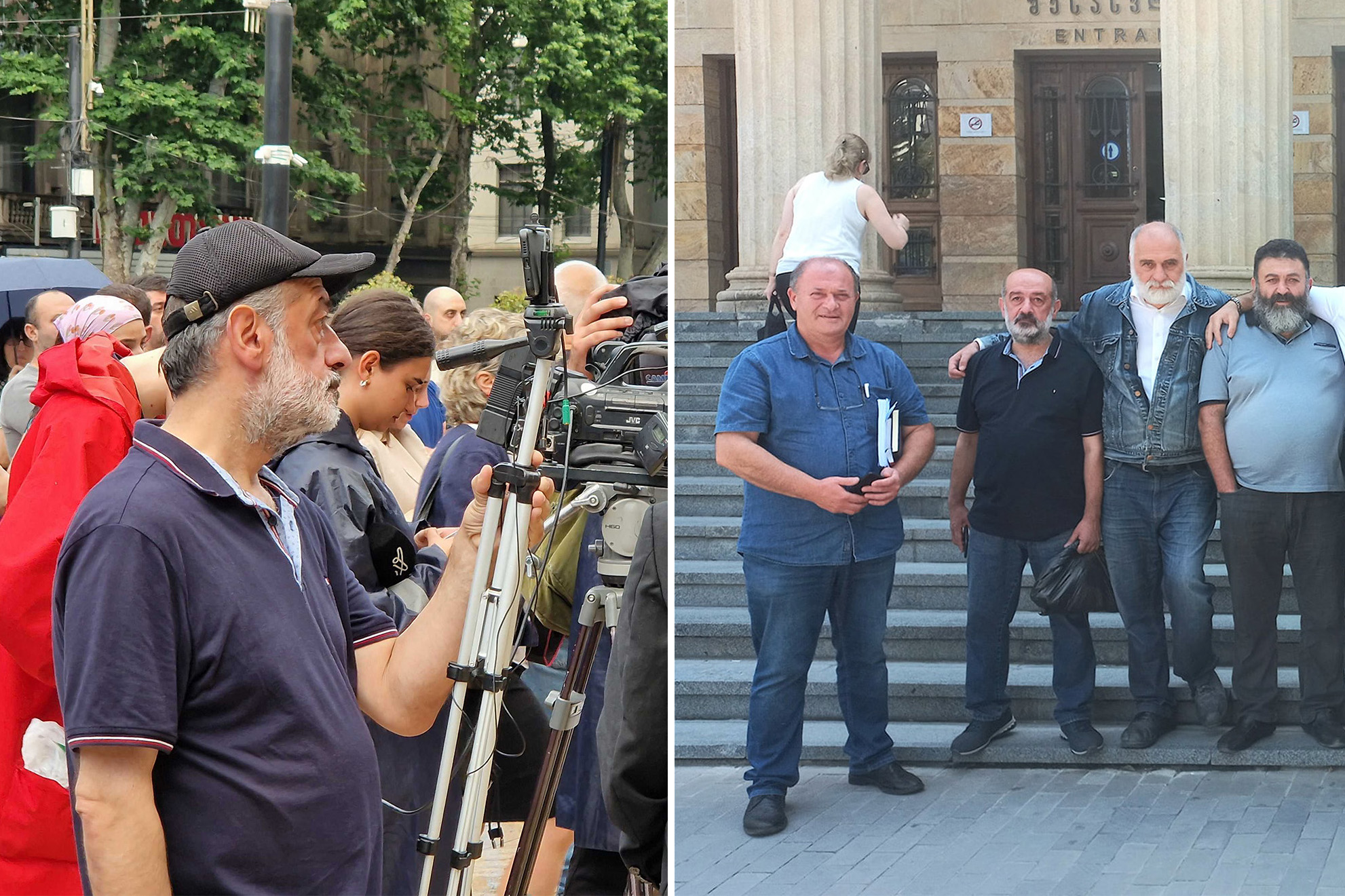 Gocha Surameli at the miners’ strike in Tbilisi (left, photo: Mariam Nikuradze/OC Media) and posing with the ‘Conscience Boys’ advocating the release of people arrested for the 5 July riots (image via Facebook).
Gocha Surameli at the miners’ strike in Tbilisi (left, photo: Mariam Nikuradze/OC Media) and posing with the ‘Conscience Boys’ advocating the release of people arrested for the 5 July riots (image via Facebook).Prominent far-right campaigner Guram Palavandishvili was also spotted by others at the miners’ demonstration.
Do the miners support the far right?
OC Media collected photos of the far-right figures at the Tbilisi protest and showed them to some of the miners outside parliament to ask if they knew any of these people.
The miners recognised all of them but said they did not know them, and tried to distance themselves from the men.
Indeed, on 20 June, OC Media witnessed far-right campaigner Irakli Khomasuridze telling the miners to distance themselves from friends of Lazare Grigoriadis, the 21-year-old on trial for his role in the March protests. Khomasuridze was heard telling the miners that they were ‘faggots’ and ‘foreign agents’. In response, the miners told Khomasuridze to leave.
We also asked the miners what they thought of Konstantine Morgoshia, one of the leaders of Alt Info, who wrote on Facebook expressing support for the strike.
‘He is also one of those swine businessmen, yes’, one of them responded.
‘He is the leader of [Alt Info] and we are calling everyone to do business in the correct way. But a person like him, how can he stand next to us when he is doing the same [as the mining company]?’
‘We try not to get such people close to us’, he added.
Salome Shubladze is the director of social policy at a local rights group, the Social Justice Centre. The centre has long advocated for the miners in Chiatura and elsewhere in the country, and provides legal aid to them.
Shubladze told OC Media that she also noticed members of Alt Info at the miners’ protests, recalling one instance in which they criticised young people for their appearance.
‘They told them: “why are you wearing an earring, believe in Christ”. They responded that they came to express solidarity, but this man told them to believe in Christ first’, she recalled.
She said that the young people then asked the miners if they knew who this person was, which they said they didn’t.
The incident was one of those recounted by Lucas Ablotia that deterred him and his friends from continuing to attend the miners’ strike.
‘There was aggression towards others too’, he said, ‘including one person with earrings; they said they wouldn’t allow men with earrings close, that they’d beat them. There were threats like this towards people who looked different, who had dyed hair or colourful accessories. They kicked out many people very aggressively.’
Shubladze added that this was not the first time far-right groups had attached themselves to such protests, recalling the Namakhvani HPP dam protests.
‘Alt Info were chasing after young people who were not necessarily dressed in a conventional way. We see the same thing here’, she said.
And unlike the young people, who did not express any motivation other than solidarity for joining with the miners, ‘chasing after young people’ certainly seems to have been a primary motivation for the far right.
Giorgi Odzelashvili, one of the far-right campaigners spotted at the protest, posted a photo on Facebook on 19 June of a young man with a rainbow bag. It is unclear if the photo was even taken during the miners’ protest, but Odzelashvili claimed it was, stating that there were ‘a lot of faggots’ gathered there.
He urged supporters to join him while hinting at his violent intentions, telling his followers they should not be surprised if he were arrested.
Disappointment
The conflicts has left many of the miners distrustful of everyone and anyone without a personal connection to Chiatura.
Time and again, the miners who spoke to OC Media said their goal was simply to realise their right to just and dignified employment.
They said that many people had come to them, sometimes with pictures, sometimes with stories about specific people, telling them that they should avoid them. As a result, they no longer knew who to believe.
‘In the end, we decided not to let anyone close to our tribune. No one will be able to stand at the microphone except us’, one of them said.
Despite the confusion, they said they still wanted support.
‘We want many people to come and we want to let these people understand our problems as clearly as possible’, they said.
But the far-right presence has had an impact, with Ablotia and others saying they no longer felt safe attending.
The Social Justice Centre’s Salome Shubladze echoed suspicions among some that this may have been the point all along.
‘Obviously, when there are violent groups at a protest, some people will avoid going.’
While she said there was not enough evidence to link these groups directly to the government, it was visible that Alt Info’s goals were often in unison with those of the government.
‘This is why we do not rule out that this group is being used to weaken and divide the protest, and to fragment and remove the support which this protest still has.’
For now, as their strike continues unabated, many of the miners have been left disillusioned with their journey to the capital.
Giorgi Kupatadze, who had sewed his eyes shut as part of the strike because he ‘doesn’t want to watch this injustice anymore’, arrived in Tbilisi to join the protest on 20 June. He left the next day, stating that he had hoped to gain more attention to their plight.
‘I am leaving this place very heartbroken’, Publika cited him as saying.
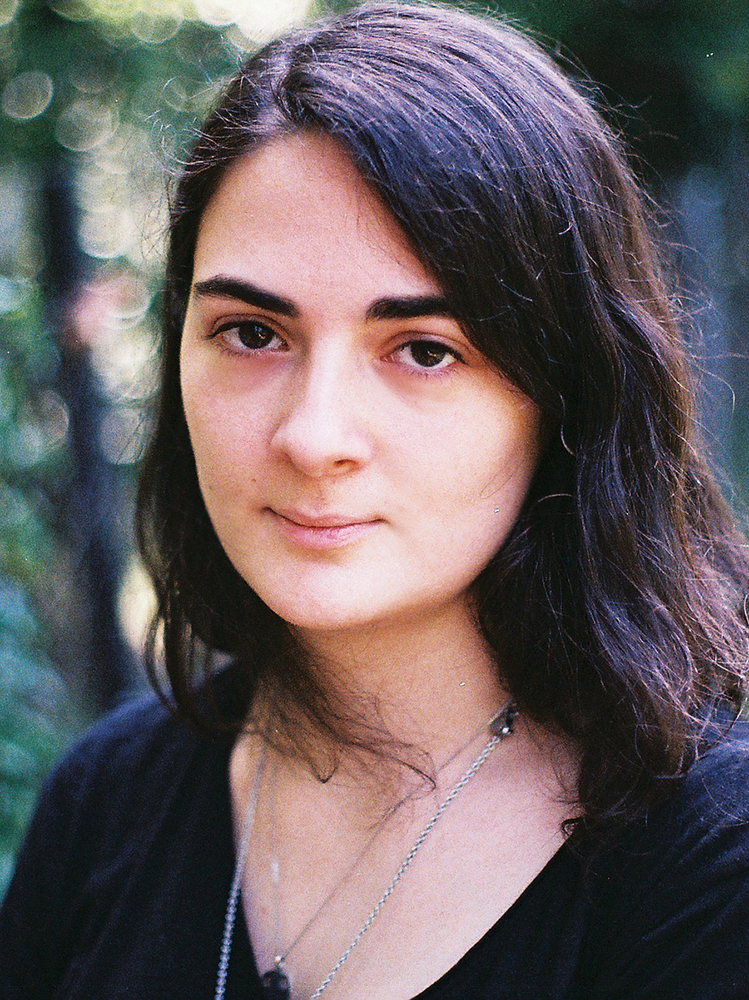
By Mariam Nikuradze
Mariam is a veteran journalist with over 10 years experience under her belt. She is passionate about gender equality and workers’ rights. Despite now being shackled behind a desk for most of the time, she can never sit still when something is happening and always goes to report from the ground. Mari lives with her cat Willie, who she is training to be a dog.


